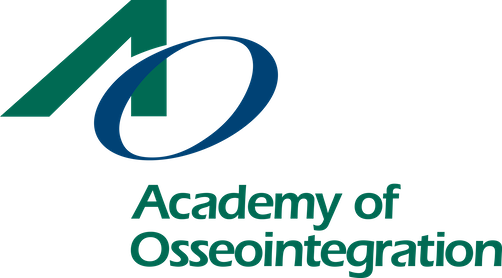-
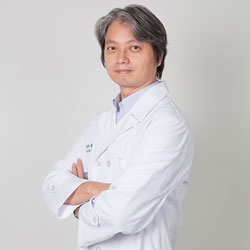 Reis Cheng-Hsiang Hsu, BDS, MS “PASS” principle (Primary wound closure, angiogenesis, space and stability) is the foundation for achieving predictable bone augmentation. This lecture will cover every aspect of this principle so the participants can predictably achieve the bone augmentation that is needed for proper implant placement and implant stability. The lecture will focus on the detail technique of extreme flap advancement, graft mobilization and the skill of flap closure that can be applied even in the vertical bone augmentation. Recorded - July 14, 2022
Reis Cheng-Hsiang Hsu, BDS, MS “PASS” principle (Primary wound closure, angiogenesis, space and stability) is the foundation for achieving predictable bone augmentation. This lecture will cover every aspect of this principle so the participants can predictably achieve the bone augmentation that is needed for proper implant placement and implant stability. The lecture will focus on the detail technique of extreme flap advancement, graft mobilization and the skill of flap closure that can be applied even in the vertical bone augmentation. Recorded - July 14, 2022 -
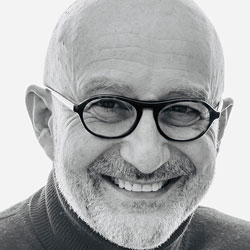 Philippe Khayat, MSD Peri-implantitis is a puzzling and frustrating complication. Sadly, it is becoming more and more frequent. Several senior dental professionals tell us that, for a long time (1985-2005), peri-implantitis was almost absent from their experience. They mention the shift from machined to modified implant surfaces as a possible explanation. In other terms, could moderately rough implant surfaces be a risk factor? The debate is very active and scientific studies do not lead to the same conclusions. We will explore this controversy both from a scientific and clinical perspective and evaluate the need for hybrid implants. Recorded - March 17, 2022
Philippe Khayat, MSD Peri-implantitis is a puzzling and frustrating complication. Sadly, it is becoming more and more frequent. Several senior dental professionals tell us that, for a long time (1985-2005), peri-implantitis was almost absent from their experience. They mention the shift from machined to modified implant surfaces as a possible explanation. In other terms, could moderately rough implant surfaces be a risk factor? The debate is very active and scientific studies do not lead to the same conclusions. We will explore this controversy both from a scientific and clinical perspective and evaluate the need for hybrid implants. Recorded - March 17, 2022 -
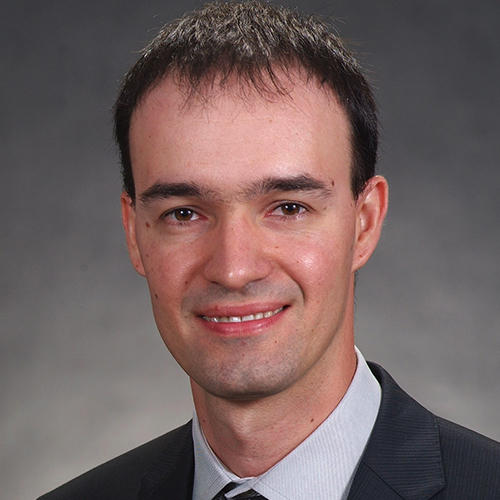 Gustavo Mendonca, DDS, MS, PhD It is critical to position and prepare ourselves with digital workflow in mind to be prepared and up to date with current technology. Digital technology is becoming more affordable in everyday dentistry. Combination of computed tomography and 3D scanning allows more advanced and predictable planning for treatment for implant cases. These advanced tools have great applications in clinical practice. This presentation will discuss steps of digital workflow for implant treatment planning and interim and final restorations utilizing intraoral scanners, CAD/CAM software and Recorded - May 17, 2022
Gustavo Mendonca, DDS, MS, PhD It is critical to position and prepare ourselves with digital workflow in mind to be prepared and up to date with current technology. Digital technology is becoming more affordable in everyday dentistry. Combination of computed tomography and 3D scanning allows more advanced and predictable planning for treatment for implant cases. These advanced tools have great applications in clinical practice. This presentation will discuss steps of digital workflow for implant treatment planning and interim and final restorations utilizing intraoral scanners, CAD/CAM software and Recorded - May 17, 2022 -
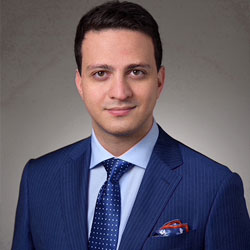 Shayan Barootchi, DMD Implant therapy has become the standard treatment for replacement of missing teeth. Nonetheless, with its popularity, there has been a rise in aesthetic and biological complications and the emergence of peri-implant diseases. This presentation will focus on the components of the peri-implant phenotype, particularly the implant soft tissue phenotype, and strategies for its augmentation and therefore, modification. The importance of keratinized mucosa on peri-implant health will be reviewed together with the various approaches to regenerate keratinized and attached peri-implant mucosa. Similarly, the key role of tissue thickness for stability and esthetics, as well as surgical approaches and biomaterials for mucosal thickness augmentation, will be discussed. This presentation will also touch upon novel methodologies for assessment and quantification of implant health and disease. Recorded - October 13, 2022
Shayan Barootchi, DMD Implant therapy has become the standard treatment for replacement of missing teeth. Nonetheless, with its popularity, there has been a rise in aesthetic and biological complications and the emergence of peri-implant diseases. This presentation will focus on the components of the peri-implant phenotype, particularly the implant soft tissue phenotype, and strategies for its augmentation and therefore, modification. The importance of keratinized mucosa on peri-implant health will be reviewed together with the various approaches to regenerate keratinized and attached peri-implant mucosa. Similarly, the key role of tissue thickness for stability and esthetics, as well as surgical approaches and biomaterials for mucosal thickness augmentation, will be discussed. This presentation will also touch upon novel methodologies for assessment and quantification of implant health and disease. Recorded - October 13, 2022 -
 Frauke Müller, DMD When tooth loss occurs later in life, ageing and multimorbidity impact dental treatment decisions. There is sufficient evidence to state that the mandibular implant overdenture is a well-established treatment modality, certainly in non-dependent edentulous individuals, but little is known on the very old and geriatric edentulous patients with comorbidities. They often present unfavourable anatomical conditions and effects of the multiple medications for their chronic conditions. The present webinar therefore describes the use of minimal-invasive and simple treatment concepts for elderly, edentulous patients and discusses the risks of implant placement that are related to their medical conditions. It further highlights possible complications which may arise with the onset of dependency and/or frailty and advises further simplification of the implant-restorations when needed. Recall and maintenance in this group of patients is crucial to assure the patients’ benefit from the intervention until late in life. Recorded - February 2, 2022
Frauke Müller, DMD When tooth loss occurs later in life, ageing and multimorbidity impact dental treatment decisions. There is sufficient evidence to state that the mandibular implant overdenture is a well-established treatment modality, certainly in non-dependent edentulous individuals, but little is known on the very old and geriatric edentulous patients with comorbidities. They often present unfavourable anatomical conditions and effects of the multiple medications for their chronic conditions. The present webinar therefore describes the use of minimal-invasive and simple treatment concepts for elderly, edentulous patients and discusses the risks of implant placement that are related to their medical conditions. It further highlights possible complications which may arise with the onset of dependency and/or frailty and advises further simplification of the implant-restorations when needed. Recall and maintenance in this group of patients is crucial to assure the patients’ benefit from the intervention until late in life. Recorded - February 2, 2022

